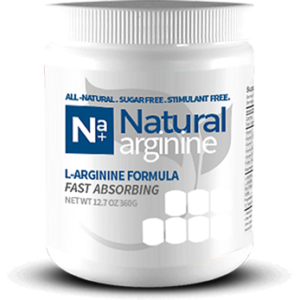What is L-arginine?
The amino acid L-arginine is classified as such. Amino acids are the fundamental components of proteins and are divided into essential and nonessential categories. Nonessential amino acids are manufactured in the body, whereas essential amino acids are not. As a result, they must be obtained through food intake.
L-arginine is classified as a semi-essential or conditionally essential amino acid, which means that it becomes essential under certain circumstances and conditions, including pregnancy, infancy, acute sickness, and trauma.
Nitric oxide is a signaling chemical produced during exercise and required for many bodily processes, including blood flow regulation, mitochondrial function, and cellular communication.
Additionally, it acts as a precursor to other amino acids, including glutamate, proline, and creatine, and is essential for the health and functioning of your immune system. Arginine is required for T-cell development, which are white blood cells that play a significant part in the immune response.
L-arginine is necessary for the proper functioning of a wide range of your body’s cells and organs, so a lack of it can have detrimental health effects. The L-arginine that is present in red wines comes from a combination of sources. It can be manufactured through the breakdown of body proteins or by eating dietary protein.
L-arginine is present in several protein-rich foods, including meat, poultry, dairy, nuts, soy products, and fish. The typical daily consumption of L-arginine from meals is estimated at 4–6 grams. For reference, arginine content in a typical Western diet is approximately 25–30% of total arginine in the body, according to research.
Benefits and uses
L-arginine supplements are taken by many populations for a variety of reasons, including athletes and those who have certain medical conditions like high blood pressure. They’re also used in the clinical setting to treat critically ill people or those with wounds. When taken as a supplement, L-arginine has been found to have a number of advantages. However, the effects are inconsistent, and L-arginine benefits may not be as effective for some illnesses as many supplement manufacturers claim.
Athletic performance enhancement
L-arginine supplements have been studied in terms of their effect on exercise performance, and they appear to boost nitric oxide levels in the body, which improves blood flow and oxygenation throughout the muscles.
For example, a 2017 double-blind study in 56 male soccer players found that L-arginine supplementation for 45 days improved sports performance compared to a placebo group.
Another minor research in 9 men found that those who drank a beverage containing 6 grams of L-arginine 1 hour before intense activity had significantly greater blood levels of nitric oxide and were able to work out for longer than a placebo group.
However, most studies investigating this relationship have found that L-arginine is not beneficial for improving athletic performance. L-Citrulline, a precursor to L-arginine that is discussed later in this post, may be a superior alternative for enhancing athletic performance.
Other potential benefits
Some studies suggest that L-arginine supplements may help in the following ways:
- Treatment of erectile dysfunction. Taking arginine in doses ranging from 1.5 to 5 grams daily for a month significantly improved erectile dysfunction, according to a 2019 meta-analysis of 10 studies.
- Improving blood flow. Although some data suggest that L-arginine pills might improve blood vessel functionality and flow in certain groups, there is considerable debate among researchers. However, many research have revealed that L-arginine has no effect.
- Treating and preventing preeclampsia. Studies have demonstrated that treatment with L-arginine during pregnancy may help prevent and treat preeclampsia, a dangerous condition characterized by high blood pressure and protein in the urine.
This list is not exhaustive, and L-arginine has been studied for its potential beneficial effects on various conditions, including obesity, heart disease, cancer, polycystic ovary syndrome (PCOS), infertility, and anxiety. It can be used on its own or in combination with other supplements.
However, studies on the impact of L-arginine in people with these and other disorders are limited and inconclusive, highlighting the necessity for further research.
L-arginine supplements are also used for a variety of additional purposes, such as decreasing the incidence of the common cold and aiding weight reduction. However, many of these claimed advantages aren’t based on scientific study.
L-Arginine Side effects and precautions
As we all like to know before starting a new medication, what’re the side effects? What’s are l-arginine side effects and how could it affect you? Overall, studies have shown that L-arginine is safe and well tolerated when taken as a supplement for long periods of 1 year or more.
However, at higher doses of 9 grams or more per day, it can result in bloating, abdominal discomfort, nausea, and vomiting.
However, a daily dose of up to 30 grams was well tolerated and free of negative consequences in a 90-day study of 142 individuals, suggesting that even extremely large doses of L-arginine are usually safe, at least for the time being.
Arginine supplements, despite their good safety profile, should be avoided by specific populations.
Individuals who have asthma, liver cirrhosis, kidney disease, low blood pressure, and guanidinoacetate methyltransferase deficiency — an inherited condition that affects arginine metabolism — should avoid L-arginine due to the potential for negative effects.
L-Arginine Side Effects With Interactions Of Medications
L-arginine may react with a variety of medicines, including the following:
- Blood-pressure-lowering medications: enalapril (Vasotec), losartan (Cozaar), amlodipine (Norvasc), furosemide (Lasix), etc.
- Erectile dysfunction medications: sildenafil citrate (Viagra), tadalafil (Cialis), etc.
- Blood-thinning medications: clopidogrel (Plavix), enoxaparin (Lovenox), heparin, warfarin (Coumadin), etc.
- Antidiabetic medications: insulin, pioglitazone (Actos), glipizide (Glucotrol), etc.
- Medications that increase blood flow: nitroglycerin (Nitro-Dur, Nitro-Bid, Nitrostat), isosorbide ( Sorbitrate, Imdur, Isordil), etc.
- Diuretic medications: amiloride (Midamor), and triamterene (Dyrenium), spironolactone (Aldactone), etc.
Furthermore, L-arginine may react with a variety of medications and substances.
- Herbs and supplements with blood-pressure-lowering effects: coenzyme Q10, cat’s claw, fish oil, Lycium, stinging nettle, theanine, etc.
- Herbs and supplements that may reduce blood sugar: fenugreek, Panax ginseng, Siberian ginseng, guar gum, etc.
- Herbs and supplements that thin the blood: clove, angelica, garlic, ginkgo biloba, Panax ginseng, turmeric, etc.
- Xylitol: interaction with this sugar alcohol may cause low blood sugar
Storage and handling
Keep L-arginine supplements in a cool, dry location. The supplement should not be exposed to heat or moisture.
Pregnancy and breastfeeding
In pregnancy, L-arginine is administered in certain situations, such as preeclampsia.
L-arginine supplementation is often advised and monitored by a healthcare professional for a particular purpose, such as preeclampsia or the risk of preeclampsia and IUGR.
There’s some evidence that L-arginine supplements might improve fertility, pregnancy success, and birth outcomes in women from both high- and low-resource areas.
This is due to fetal development and placenta growth, which necessitate an escalation in L-arginine requirements during pregnancy. Protein needs are likely to increase in response to the global protein crisis, especially among women who lack access to high-protein foods in under-resourced countries.
Increased demand for arginine during pregnancy may be met through diet, protein or individual amino acid supplements under certain situations. Pregnant women who are restricted eaters or are experiencing severe morning sickness that makes them unable to meet nutritional intake requirements.
However, supplements during pregnancy should always be authorized and supervised by a medical expert. If you’re pregnant and considering taking supplemental L-arginine, talk to your doctor first.
There have been no studies on L-arginine supplements in nursing moms. As a result, you should inquire about whether taking L-arginine supplements is safe and necessary for your individual needs during breastfeeding with your medical professional.
Use in specific populations
L-arginine is known to be safe for pregnant women and older people. L-arginine has been proved beneficial in numerous research trials, including those on expectant moms and elders. Some persons, however, should avoid L-arginine due to diseases that affect the liver or kidneys, such as severe asthma.
L-arginine supplements are sometimes used in children in the clinical setting and shown to be safe when taken at recommended dosages. However, arginine supplementation in children should always be done under the supervision of a healthcare professional.
It’s not advisable to give your kid L-arginine unless it’s absolutely necessary and was advised by a doctor. Giving a kid too much L-arginine can result in severe side effects and even death, so it’s critical to follow this advice.
Overall, l-arginine side effects re rare if taken at recommended dosages. But others, such as lowered blood sugar levels, are possible when taking the supplement.
To prevent L-arginine side effects, always consult your physician before consumption of any supplements containing this amino acid. This way you’ll know if there’s a risk for interactions with other drugs or foods that you take.












